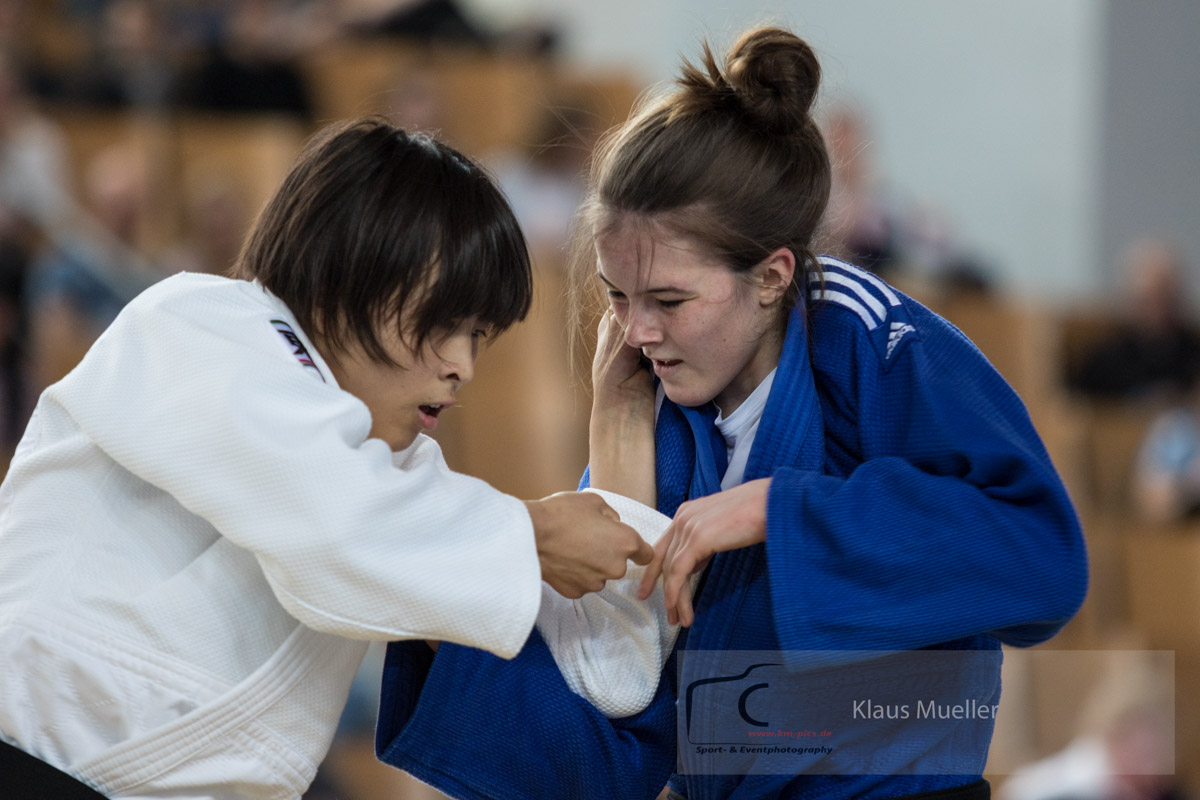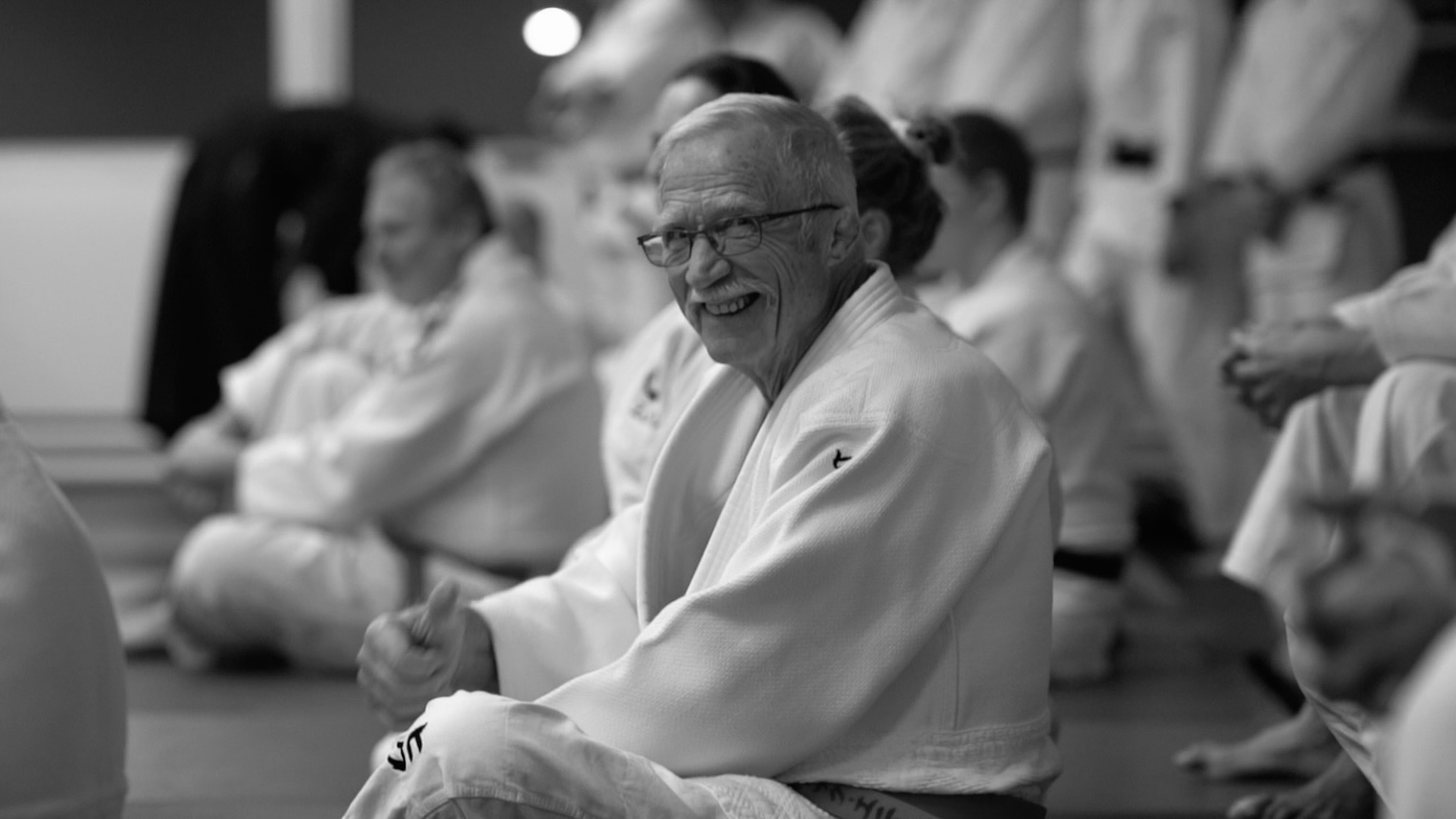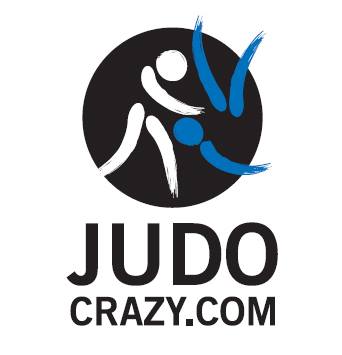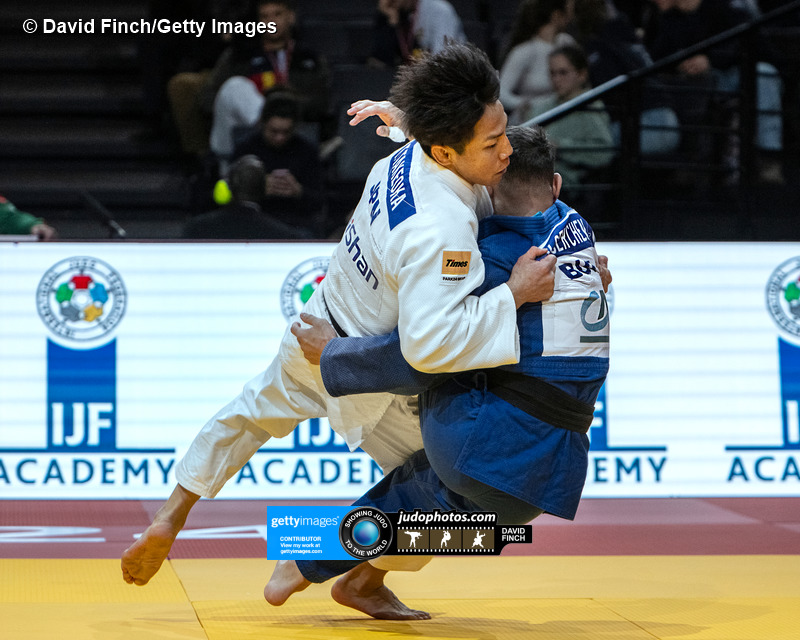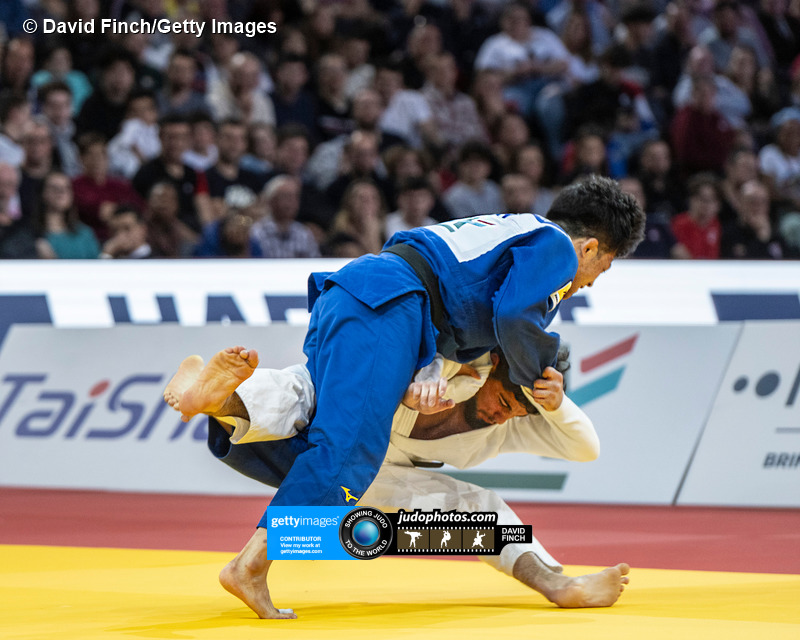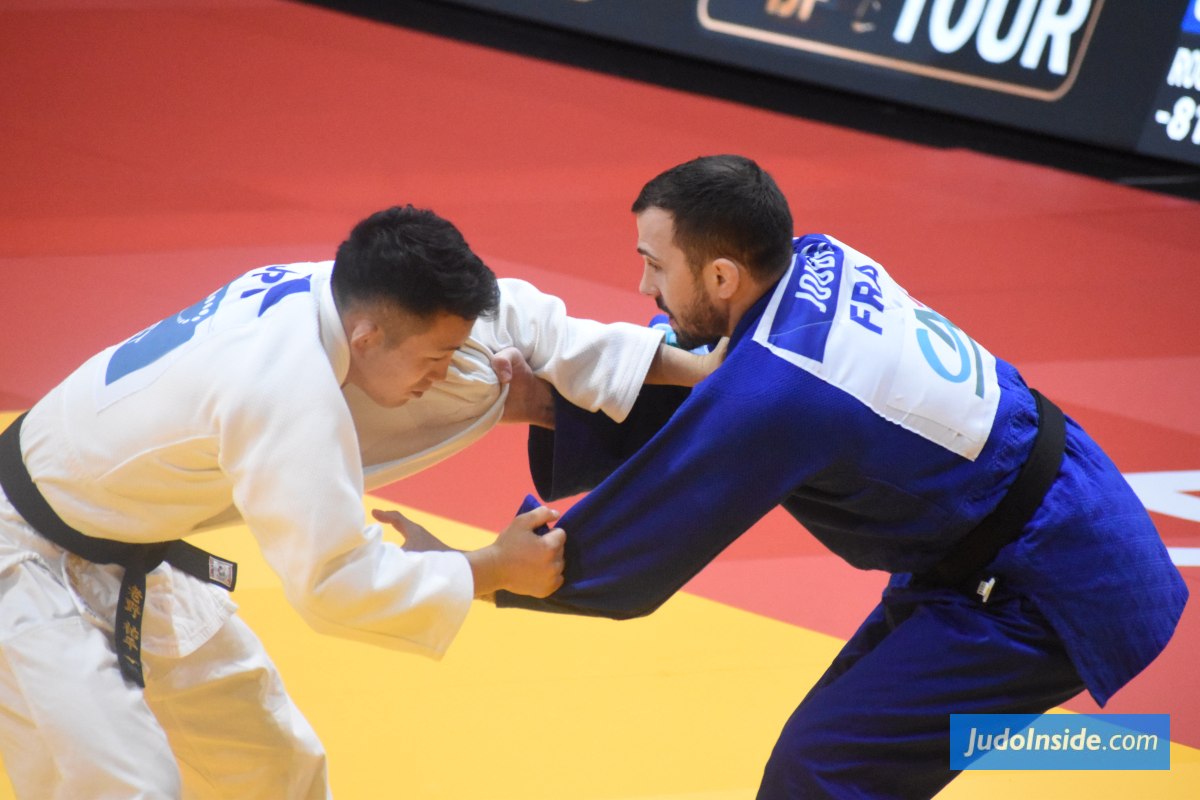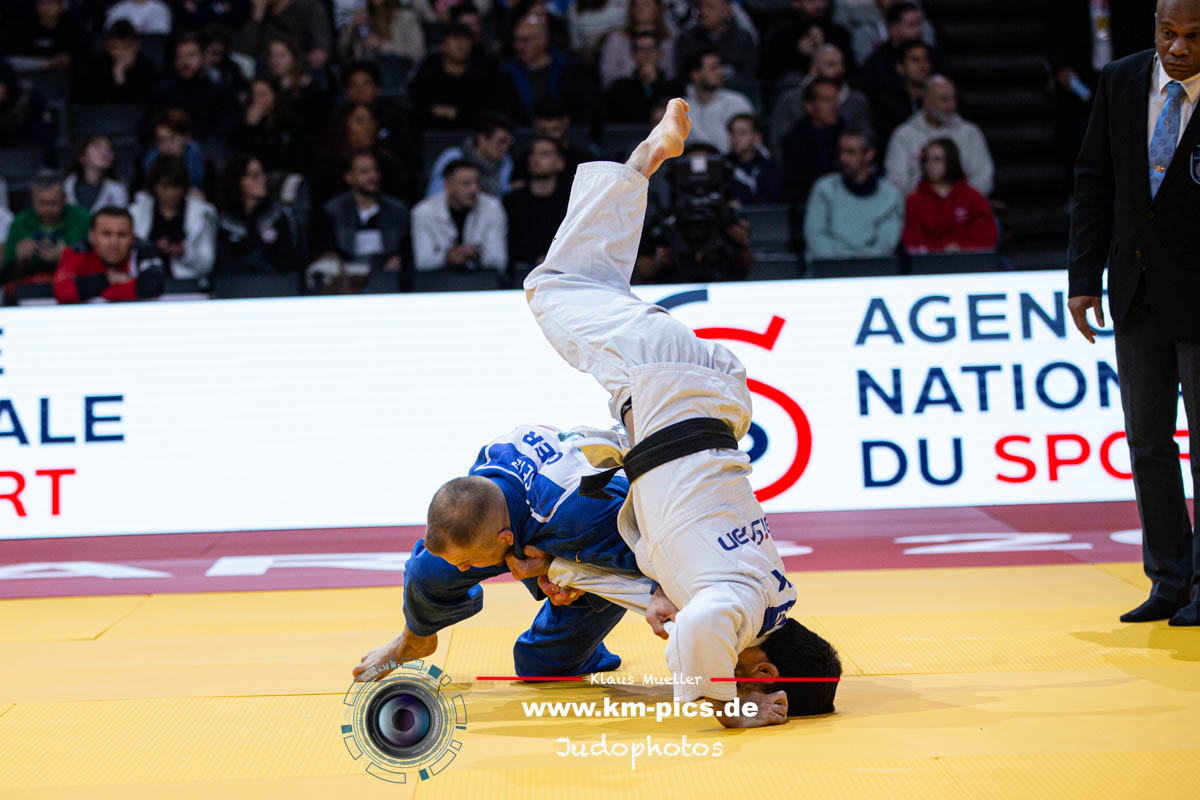Olympic Games 1964 review U68kg gold for Takehide Nakatani (JPN)
.jpg)
 23 Apr 2023 00:35
23 Apr 2023 00:35
 by JudoCrazy and JudoInside
by JudoCrazy and JudoInside
 From internet, no source
From internet, no source
The 1964 Tokyo Games could be said to be the first Olympics of the modern era because it was the first one to be broadcast on TV screens around the world. Japan was strong in some other sports, notably wrestling and gymnastics, but judo was the sport it took most pride in. This was understandable as judo had come from Japan. And in 1964, it was also the only Olympic sport with an Asian origin. It was widely assumed that the Japanese would dominate all the categories, except maybe the Open event, where Geesink was expected to compete in.
Most of the judokas from other countries had trained extensively in Japan, and many were in awe of the Japanese. There was almost a deferential vibe among the other contingents for the Japanese team. This was not the case with the Soviet Union though. Unlike players from other countries, the Soviet players did not train in Japan. Instead, they were steeped in the Sambo tradition back home, and they treated judo as just another form of wrestling.
Four categories were being contested and each country could send up to four players. Most countries with four competitors would put one in each weight class (-68kg, -80kg, +80kg and Open) but the Russians decided to put two players in the heavyweight division and two in the lightweight division, hoping that at least one of the two would take out the Japanese.
The competition took place in the Nippon Budokan, which had been built for the Olympics. The preliminary rounds lasted 10 minutes, while the finals were 15 minutes long. The only scores were ippon and waza-ari.
Although there was no video replay available at the time, there was an elite jury, consisting of three senior officials, who could give advice to the referees when warranted. A red light would shine whenever those officials wanted to dish out some advice.
Japan’s Takehide Nakatani from Meiji University was not the clear favorite in Japan. Two other players, Takafumi Shigeoka of Tokyo University of Education (now University of Tsukuba) and Hirofumi Matsuda of Kansai University, were generally considered superior players. It took a while for the federation to make a decision.
When Nakatani found out, just days before the competition, that he had been the one chosen, he immediately burst into tears of disbelief. “Matsuda was the best, and I was waiting with the feeling that I might not be good enough,” he said, but added that once he was selected, he was sure he would win the gold medal for Japan. Matsuda and Shigeoka would go on to become world champions in 1965 and 1967, respectively.
Although a relative unknown, Nakatani was considered the favorite by virtue of the fact that he was the Japanese representative. His main challenger was the Soviet player, Oleg Stepanov, whom he had fought before. In a pre-Olympic competition, Nakatani won but only very narrowly through a hantei (decision).
Nakatani was a kosoto-gari expert whose nickname was “Octopus Foot”. True to form, he swept through his first three matches — against Brian Jacks (GBR), Udom Rasmelungon (THA) and Paul Maruyama (USA) — using his favorite ashiwaza.
This took him to the semifinal, where he would meet Stepanov. Perhaps still smarting from their previous encounter where the Soviet player took him to full time, Nakatani threw everything into the match, trying a variety of techniques. But it was his favorite kosoto-gari that earned him his first score of waza-ari. Nakatani finished the match by switching directions and taking Stepanov over with osoto-gari for another waza-ari.
Compared to the semifinal, Nakatani’s gold medal match, against Eric Haenni of Switzerland, was a relatively easy affair. He opened up the accounts with a slick kosoto-gari at the start of the match. The referee didn’t score it but the corner judges intervened and a waza-ari was awarded. About a minute later, Nakatani once again swept Haenni off his feet. Again, the referee did not award a score and this time the corner judges did not intervene. A few seconds later though, the red light flashed, indicating that the elite jury had some advice for the referee, who subsequently declared the second throw to be a waza-ari as well. This meant the match was suddenly over.
Despite the fact that he had just become the first Olympic gold medalist in history, Nakatani was surprisingly not very emotional during the medal ceremony. When he received his gold medal from International Olympic Committee President Avery Brundage, Nakatani was not crying. Perhaps he had done enough of that when he was selected for the Games. “I was happy, but to be honest, it didn't bring me to tears,” he said afterwards.
Support JudoCrazy
JudoInside's JudoCrazy partner, Oon Yeoh, is creating interesting content such as this series of articles about Olympic judo history. Support his efforts by subscribing to his Patreon or Substack.
 like
like
 share
share
